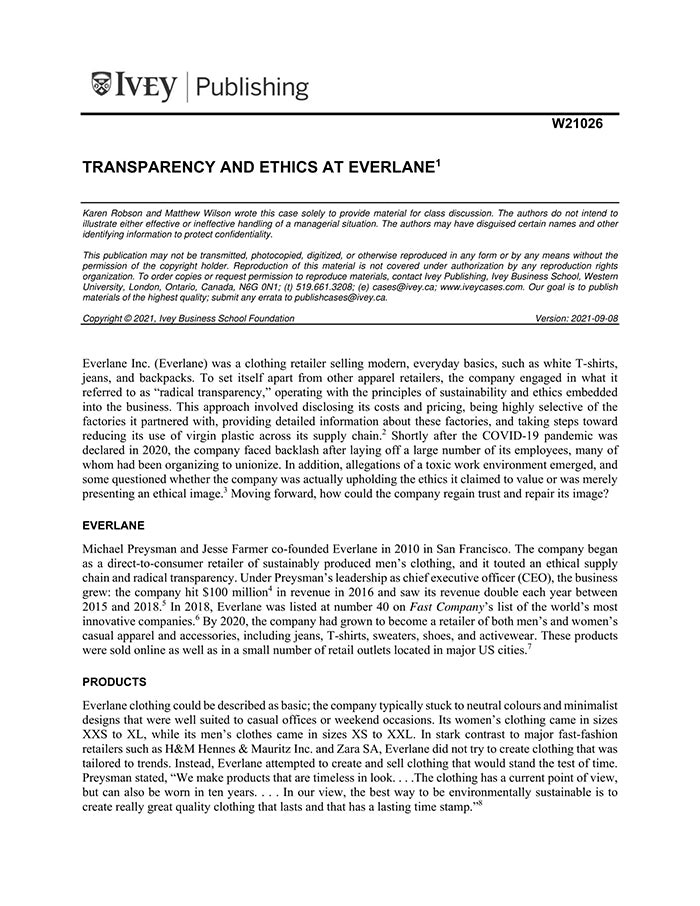Transparency and Ethics at Everlane
受取状況を読み込めませんでした
Innovative US apparel retailer Everlane Inc. (Everlane) employed "radical transparency," disclosing detailed information about the costs it incurred and the factories that manufactured its clothes. The company also claimed to prioritize ethics and sustainability. For example, Everlane committed both to supporting its suppliers by addressing their needs and to eliminating virgin plastics from its entire supply chain by 2021. The company's approach had been successful: since its founding in 2010, Everlane had seen growth in its customer base and revenues. However, in 2020, the company faced a public relations crisis, encountering backlash after laying off a number of employees. While these layoffs were purportedly due to the economic effects of the COVID-19 pandemic, they coincided with employees' unionization efforts. In addition, many former employees reported that the company was not, in fact, ethical but was anti-Black and anti-union and had a toxic internal culture. As the company had built its business on its image and its promise of ethics, transparency, and sustainability, the crisis called into question the foundation of the organization. How could Everlane move forward according to its stated values and continue to both meet the needs of its customers and to earn a profit? Karen Robson is affiliated with University of Windsor. Matthew Wilson is affiliated with Central Michigan University.
【書誌情報】
ページ数:6ページ
サイズ:A4
商品番号:HBSP-W21026
発行日:2021/2/5
登録日:2021/7/20

